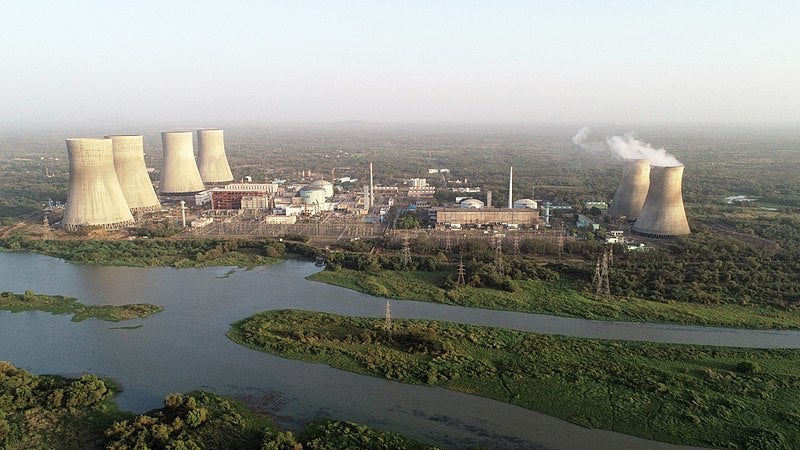
Indian Prime Minister Narendra Modi has officially inaugurated two new pressurised heavy water reactors (PHWRs) at the Kakrapar atomic power station (KAPS) in Gujarat, western India.
Built by the Nuclear Power Corporation of India (NPCIL), the Unit 3 (KAPS-3) and Unit 4 (KAPS-4) projects have a capacity of 700MW each. Both units of the Kakrapar nuclear power plant entailed a total cost of over INR225bn ($2.71bn).
The KAPS-3 and KAPS-4 projects are expected to generate approximately 10.4 billion units of clean electricity annually.
The nuclear reactors will also benefit consumers of multiple states including Gujarat, Madhya Pradesh, Chhattisgarh, Goa, Maharashtra, and the union territories of Dadra and Nagar Haveli and Daman and Diu.
Modi, on social media platform X, said: “Went to the Kakrapar Atomic Power Station. Two new Pressurised Heavy Water Reactors were dedicated to the nation.”
Located near Surat, the Kakrapar atomic power station has a total of four pressurised heavy water reactors. KAPS 1 and KAPS 2 of the nuclear facility have a capacity of 220MW each.
The environmental clearance for the KAPS 3 and KAPS 4 reactors were secured from the Ministry of Environment and Forest in 2006. Unit 3 entered into commercial operation in late June 2023, while Unit 4 achieved first criticality in December 2023.
The newly inaugurated reactors are said to be the largest indigenous PHWRs and have advanced safety features.
NPCIL awarded Larsen & Toubro (L&T)’s infrastructure operating company the contract for the construction of the main plant civil works of KAPS 3 and KAPS 4 at the Kakrapar facility in 2009.
Earlier this month, the Indian Prime Minister laid the foundation stone for phase-1 of the Talabira thermal power project in Sambalpur, Odisha in eastern India. The power project will have a generating capacity of 2.4GW.



